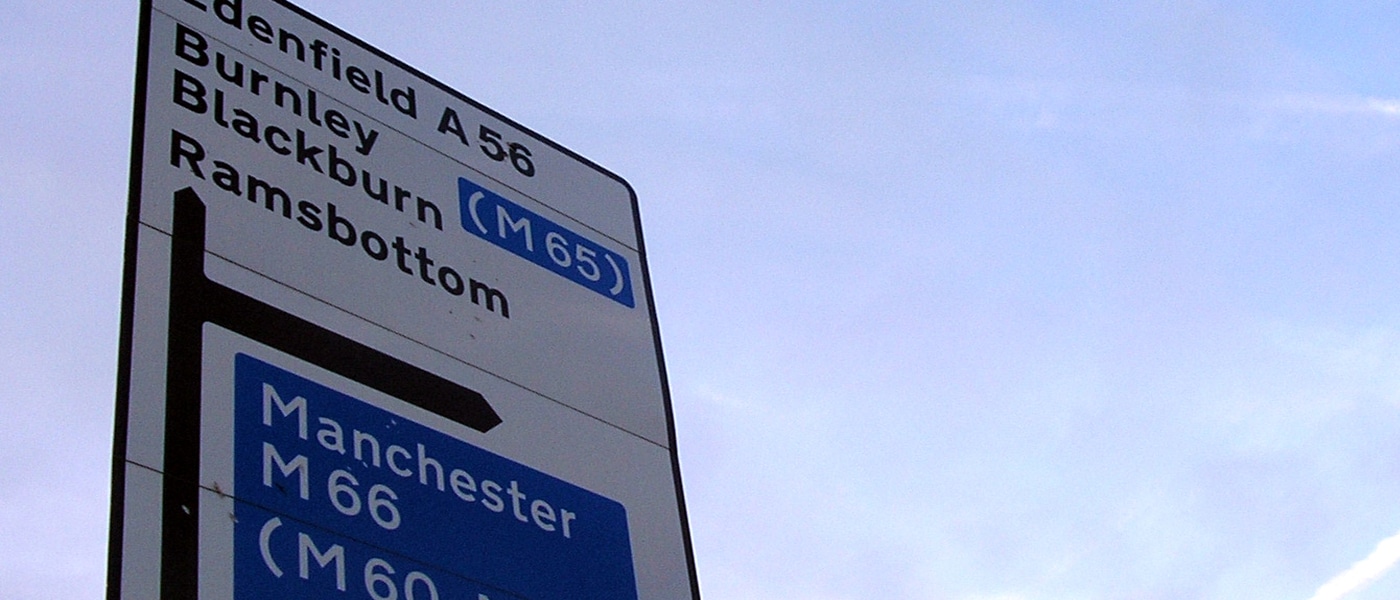Like pilgrims flocking to the Holy Land, Smiths fans travel for days to be here. No distance is too great for true devotees, who cross oceans and time zones to reach this temple of popular culture. I’m at the Salford Lads Club in Greater Manchester, a Victorian youth centre immortalized by The Smiths in 1986, when the band used it as a backdrop to shoot the album sleeve for The Queen Is Dead. Since then fans have come in droves to recreate that iconic shoot, striking Smiths poses for photographs that can be found on bedroom walls from Peru to Portugal, Korea to Canada. “It’s a World Heritage Site,” claims Leslie Holmes, a volunteer at the youth club. That might be pushing it, but this iconic building certainly has cultural significance. Standing before it I feel a sense of occasion and pose for the obligatory photo.
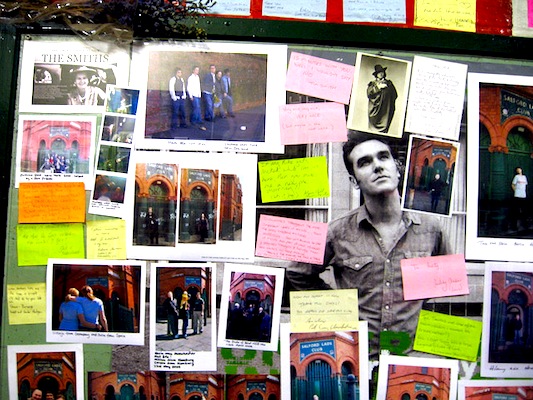
Leslie ushers me inside to show me the dusty weightlifting room he has transformed into a Smiths shrine. The walls are covered with posters, handwritten notes from fans and photographs of people posturing in front of the building. There are giant collages, pictures of Morrissey lookalikes and photos of devotees recreating various album covers.
“It’s basically a small museum to The Smiths,” says Leslie, the curator of this fascinating collection, who, curiously, is not a fan of the band. “We get people from the U.S., South America, China and Japan; in fact, I can’t think of a single country we haven’t had visitors from.”
Cradle of creativity
This corner of Greater Manchester is just part of the story. For the discerning music lover, this city stirs your soul at every corner. Sure, it’s not the only British town with a rich music heritage; nearby Liverpool gave the world The Beatles; Birmingham produced Black Sabbath and Led Zeppelin; and London lays claim to The Rolling Stones, the Sex Pistols and countless more. But for a child of the eighties like me, it’s Manchester that really resonates. This is a city that within a decade spawned not only The Smiths, but Joy Division, New Order, Inspiral Carpets, Happy Mondays, The Charlatans, The Stone Roses and James and Oasis. These bands – along with local DJ’s who imported techno from New York and Detroit – fused alternative and psychedelic rock with electronic dance music. They called it Madchester and it was the soundtrack of their generation.
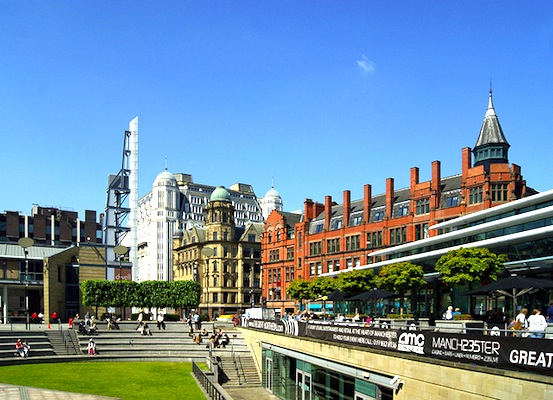
So how did England’s third city, an industrial town in the north, become such fertile ground for music? “The rain,” says Inspiral Carpets drummer, Craig Gill. “It was the rain that powered the cotton mills in Manchester and when they closed down there were all these empty factories.” These vacant, red brick buildings were transformed into recording studios, music venues and nightclubs like Hacienda and Boardwalk. They became cradles of creativity; places to play music, take drugs and forget about unemployment in a city that was in a steep industrial decline. Today most of these old haunts have been claimed by the wrecking ball or turned into New York-style warehouse apartments. Gentrification won out in the end and progress conquered. Small plaques acknowledge some of the more significant venues, paying silent respect to a bygone epoch.
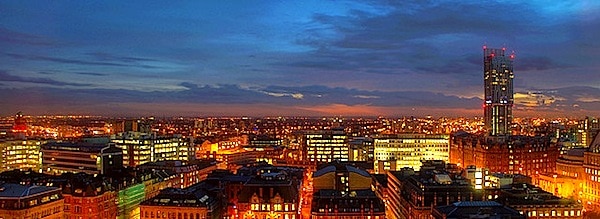
It’s only recently that Manchester has allowed itself to become retrospective about that golden age. Perhaps looking back was to admit those heady days had gone. Or perhaps the city just had a hangover. Either way, Craig is helping the city cast a nostalgic eye over its music heritage. In between touring with Inspiral Carpets he runs music tours of Manchester, taking clients to local landmarks and regaling them with anecdotes. “Noel Gallagher was our roadie back in the day,” he says, as we walk down cobbled streets remembering the nineties. “I met him in the Hacienda and we started hanging out and following the Happy Mondays together. He wasn’t a big drinker back then – three cans of lager and he was drunk.”
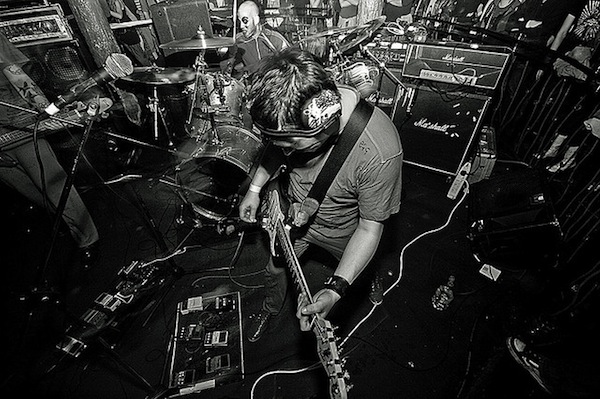
Within a few years Noel went from being Inspiral’s lackie to fronting Oasis with his brother Liam. Craig claims much of the credit for their global success. “They owe us everything,” he jokes. “We taught Noel how not to do things.”
Modern Manchester
Despite Craig’s nostalgic music tours, which really are great fun, Manchester isn’t trading on past glories. Neither is it wallowing in post de-industrialization. The once defunct docks at Salford Quays, for instance, are now home to the impressive Imperial War Museum and The Lowry, a fabulous arts and theatre complex, which hosts shows, concerts and a permanent exhibition dedicated to L.S. Lowry, famous for his paintings of industrial Britain during the 20th century.
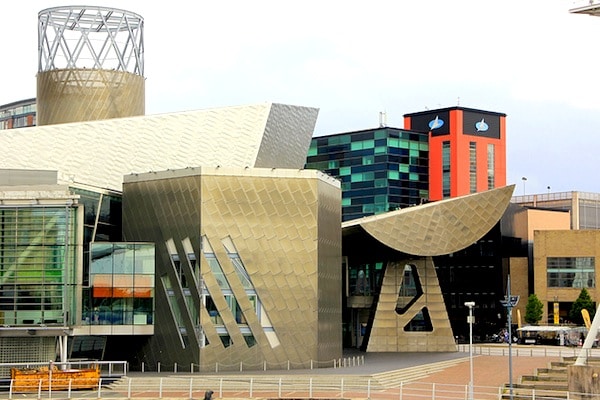
The regenerated Salford Quays is also home to the BBC’s swanky new Media City, which opened in 2011. Visitors can get a peek into the workings of the organization on one of its five weekly tours, which have won various awards.
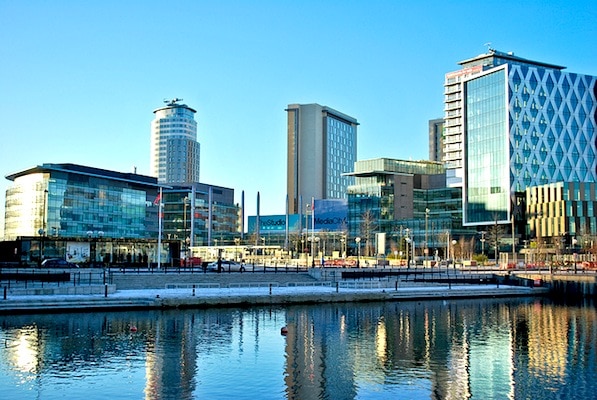
Other areas of the city have also benefitted from regeneration. The void left by the textile industry has been filled with bars, restaurants and clubs at Deansgate Locks and the Northern Quarter. Beautiful young things can be seen sipping drinks and shaking their bums in these hedonistic hotspots. The latter attracts a more bohemian crowd, who are lured by the independent boutiques and record stores, as well as the nightlife.
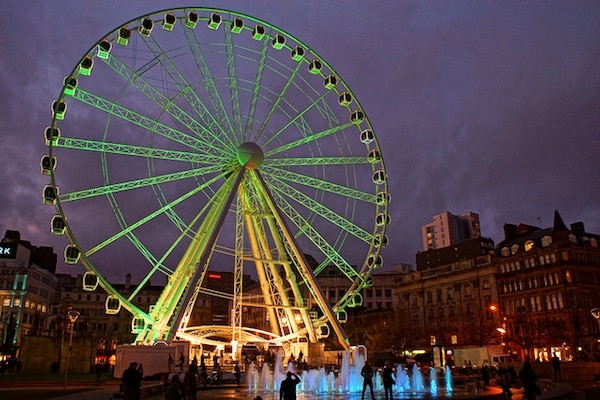
For my musical purchases, though, Craig takes me to Sifters Records in Burnage, whose eponymous owner, Mr Sifter, sold music to the Gallagher brothers back in the day. Oasis, whose debut album Definitely Maybe turns 20 this year, immortalized the modest merchant in their single Shakermaker, with the lyrics: “Mr Sifter sold me songs when I was just 16.”
Sifter tells me the good times are over now that everyone is downloading, but he’s buoyed by Britain’s vinyl renaissance.
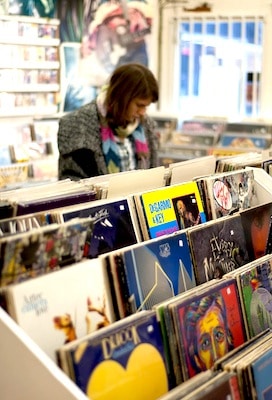
With a bag full of records, Craig and I head back into town. Enroute we pass the neighborhood where Noel and Liam’s mum still lives as well as old haunts from the Madchester days, buildings that were incubators of local talent. “That’s where the Stone Roses used to play shows,” says Craig, pointing ruefully to what is now a Turkish supermarket. “We have so much music heritage here, but keeping hold of it is difficult.”
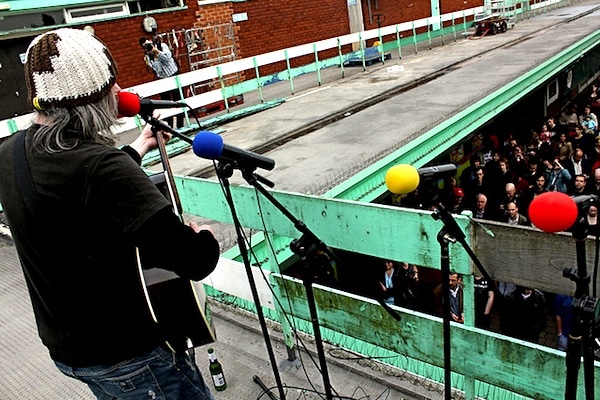
The international dialing code for Manchester is +44 followed by 161.
[alert type=white]
Where to Stay:
Radisson Blu Edwardian Manchester—Formerly the Free Trade Hall, this historic building has hosted speeches and performances from the likes of Charles Dickens, Winston Churchill and Bob Dylan. Today it is one of Manchester’s most exclusive hotels. Free Trade Hall, Peter Street; +44 161 835 9929; www.radissonblu-edwardian.com
Great John Street Hotel—This former Victorian schoolhouse has been lovingly converted into a luxury boutique hotel in the heart of Manchester. As well as charming rooms, the hotel boasts a cocktail bar, hot tub and rooftop terrace. Great John Street; +44 161 831 3211; www.eclectichotels.co.uk
Roomzzz Aparthotel—Offering affordable luxury in the heart of Manchester, the Roomzzz Aparthotel near Chinatown has 59 stylish apartments available for long and short stays. Housed inside a Grade II listed building, the apartments are sleek and spacious. 36 Princess Street; +44 203 504 5555; www.roomzzz.co.uk
Where to Eat:
The French— Winning plaudits from across the UK, The French, despite its name, serves contemporary British cuisine made with fresh local produce. At the helm is Simon Rogan, a Michelin two-starred chef whose signature is a tantalising 10 course tasting menu for £79. The Midland Hotel, Peter Street; +44 161 236 3333; www.the-french.co.uk
Greens—Located in the trendy suburb of West Didsbury, this lively vegetarian restaurant can win over the most committed carnivores thanks to its delicious menu, which takes taste buds on a culinary tour of the globe. You leave wondering whether you really need to eat meat. 41-43 Lapwing Lane, West Didsbury; +44 161 434 4259; www.greensdidsbury.co.uk
Mughli—Located in Rushholme (aka ‘Curry Mile’), Mughli is one of the finest Indian restaurants in Manchester. Its chefs use time-honoured recipes from northern India and southern Pakistan to recreate an authentic taste of the subcontinent. The cocktails are great, too. 30 Wilmslow Rd; +44 161 248 0900; www.mughli.com/manchester
Where to Drink:
The Briton’s Protection—Twice voted ‘Best Pub in Manchester,’ The Briton’s Protection is a decorative boozer with a great selection of ales and more than 300 whiskies. Punters can drink in the beer garden during summer and warm their cockles by the open fire in the winter. 50 Great Bridgewater Street; +44 161 236 5895; www.britons-protection.com
The Alchemist—Manchester’s favorite cocktail bar, The Alchemist certainly lives up to its name – bartenders here are well-versed at turning base spirits into liquid gold. The menu offers a mix of classic cocktails and unique inventions, which can be sipped in sleek surrounds. 3 Hardman Street; +44 161 817 2950; www.thealchemist.uk.com
Factory 251—The hottest ticket in town, Factory 251 is the former head office of Factory Records – the label that brought us Joy Division, New Order and the Happy Mondays, amongst others. Fitting, then, that today it is a nightclub playing some of the best tunes in town. 118 Princess Street; +44 161 272 7251; www.factorymanchester.com
What to See and Do:
A music tour—Inspiral Carpets drummer, Craig Gill, leads music tours of Manchester – the city that brought us The Smiths, Oasis, Joy Division and many more era-defining artists. Gill’s informative tour is woven together with rock ‘n roll anecdotes from a life in the industry.
The Lowry— This arts and entertainment hub is named after local artist, L.S. Lowry, who was famous for his paintings of industrialized landscapes. There’s a permanent exhibition dedicated to the artist at The Lowry, which also offers a packed program of performing arts. Pier 8, Salford Quays; +44 843 208 6000; www.thelowry.com
Tatton Park—Located just outside Manchester, the historic Tatton Park estate has a whiff of Downton Abbey about it. Boasting 1,000 acres of parkland, award-winning gardens and a stunning 19th century neoclassic mansion, this rambling rural manor is also home to a deer park. www.tattonpark.org.uk
Football tour—Football rivalry is rife in Manchester, which is home to two of the greatest soccer teams on the planet; Manchester United and Manchester City. Both clubs offer stadium tours but United, who have dominated the sport for many decades, also offer a museum chronicling their many achievements. www.manutd.com ; www.mcfc.co.uk
[/alert]

